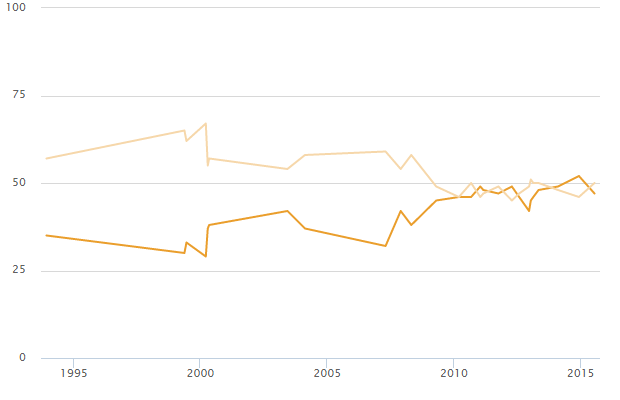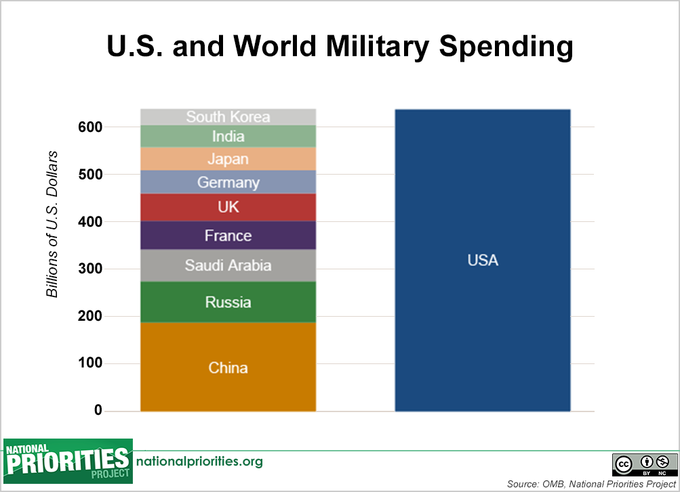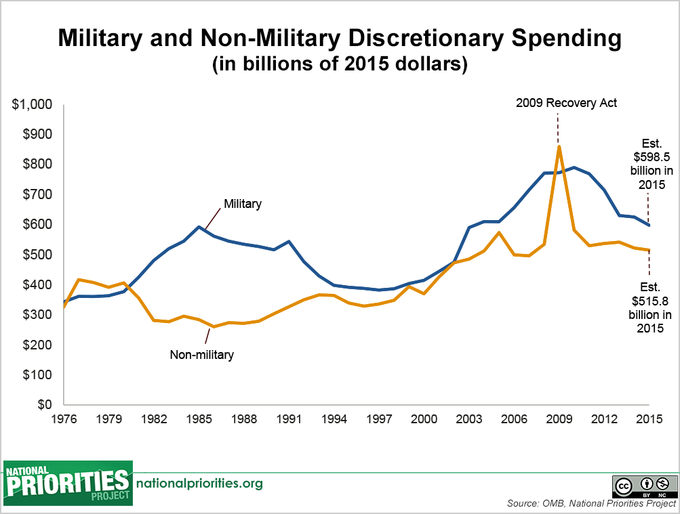Will Obamacare Survive?
Barack Obama’s place in the history books is largely hinged on who his successor. If a Democrat wins in 2016, the Affordable Cart Act (Obamacare) should be safe for the time being.
The more people who buy into the new system, the harder it will be to de-construct Obama’s signature piece of legislation. Obamacare is increasing in popularity, and more Americans are signing up for health insurance from government-run exchanges.
In addition, while Congress is continuing to seek a legal option to curtail the powers of Obamacare, but it is unlikely at this point, after several such challenges, that much damage will be done to the law.
However, a Republican in the White House in 2017 could force a u-turn.
Most of the Republican field favour a repeal of the ACA, the law having assumed a chimera-like status for Tea Party groups. Even so, repealing the law will mean threatening the insurance of millions of Americans.
If a Democrat wins next year, not only will the ACA be reinforced by rising enrolement numbers, but Obama’s domestic legacy will be protected to the point where Obamacare will be virtually impossible to remove.
Will there be gun control reform?
Aurora, Sandy Hook, Charleston, Isla Vista, Binghampton, Fort Hood, Umpqua Community College.
Obama has had to make statements on incidents of gun violence 15 times throughout his presidency. In the past week, after the shooting in Oregon, he called on news outlets to compare deaths caused by gun violence with those of terrorism.
CNN did just that and produced this graphic showing the year on year figures.

Obama is visibly frustrated by his inability to shift the debate concerning gun control. In fact, the tide is going in the opposite direction.
Despite isolated incidents when gun violence persuades more people of the merits of gun control, specifically the Sandy Hook massacre that left 20 children dead, public opinion increasingly favours protecting individual rights for gun ownership.
The Pew graph below shows Americans favouring gun rights (in the darker line) has been rising, while the fainter line represents Americans favouring gun control:

Gun ownership is derived from the second amendment of the Constitution, a clause designed to provide for ‘a well regulated Militia’, and written before the United States had a professional army or organised police force.
The problem Obama has faced is that there is cocktail of factors that make acting on gun control particularly hard:
- Horrific incidents like Sandy Hook raise support for gun control, but they also result in a surge of Americans going out and buying guns out of fear of what they just saw on television, so gun ownership increases.
- The gun lobby remains highly influential. The NRA donates hundreds of thousands of dollars to Senators and Congressmen friendly to gun rights, primarily Republicans. With pressure from above, in the form of these political donations, and below, in the guise of popular support and ownership of guns, Obama has faced an intractable situation.
- Supporters of gun rights argue that criminals, those who commit the brutal massacres that shock the nation, would not obey the law in any case. This logic is overly simplistic and ignores any possibility of reducing the availability of guns in the long term, but reflects an anxiety about the sheer numbers of guns in America now.
- The manufacture of guns has increased, which only exacerbates the problems further as Americans will only feel the need for their protection to an even greater degree. This means that proponents of gun ownership will be able to peddle their arguments for years to come, as Americans feel that the ‘bad guys’ will always be able to get their hands on a weapon in a country swamped with firearms, so why shouldn’t ‘good Americans’ too?
To add insult to injury, the very moderate ban on ‘assault weapons’ like AK-47 introduced in 1994 expired in 2004, and has not since been replaced.
Obama and his administration have been unable to shift the debate at all. Instead, recent massacres have diverted the issue into one of mental illness, avoiding the fundamental crisis of gun availability and the civic implications of widespread gun ownership.
A Republican winning in 2016 won’t touch the issue of gun rights. A Democrat may attempt to take a stand, but given the past few years, any progress on gun control looks unlikely.
Will politics be as divided?
During his farewell address in 1796 George Washington warned against the dangers of two party politics. Many of the Founding Fathers had the foresight to see that partisanship would corrupt a healthy body politic and distract from the facts of national issues, yet over the centuries the United States has fallen into strict two party systems.
Partisanship has gradually been on the rise over the past half century, but in recent years the rhetoric of party antagonism has been alarming.
President Obama has been a sort of lightening rod for Tea Party conservatives, to the extent that the Commander in Chief can have his nationality and religion questioned in mainstream political events, such as the recent rally for Donald Trump.
The crisis of partisanship is not simply that more government shutdowns are likely, or that the political centre is disintegrating, but that genuine progress on specific policy questions becomes much harder.
As this infographic shows, bipartisan cooperation has steadily been in decline for many years, and many on either side of the aisle now believe that their political opponents are threats to the United States.

For Obama, this has meant enduring charges that the Affordable Care Act, a very moderate measure compared to other western medical programs, is ‘socialist’.
No one is precisely sure why this trend towards partisan politics has occurred. Some argue it is a result of mass media, others claim it reflects a more fundamental, and worrying, divide in class and race between the two parties.
Whatever the cause, the next President will inherit a political culture determined by attack ads, smear campaigns, and governmental gridlock. Whether any of the potential candidates offer a conciliatory quality for their political opponents in D.C. is yet to be seen.
Will there be more action on climate change?
The issue of climate change remains under debate in Washington D.C. but there are indications that the momentum is moving towards governmental action and away from climate change deniers.
President Obama has taken several steps during his tenure to address environmental policy, and recently introduced new climate change action to reduce CO2 emmisions over the next fifteen years. He is pitching his plan not only on the basis of fighting global warming, but also on economic and health grounds that can relate to everyday Americans.
Popular opinion appears to be shifting towards supporting federal action against climate change, with a recent poll showing 59% of respondents wanting a President in 2016 who would favour government action.
However, in the Republican ranks there is dissent. Congressional Republicans are gearing up to fight back against the Environmental Protection Agency’s regulations on coal fired power plants, and our current slate of Republican presidential candidates are unwilling to commit to climate change policy.
In CNN’s recent primary debate the Republican hopefuls were asked whether they would support an ‘insurance policy’ approach to climate change, as articulated by Ronald Reagan’s Secretary of State, George Shultz.
The essence of Shultz’s idea being that, while we may be unable to be sure of climate change and its implications, it is logical and sensible to have a set of policies in place, just in case.
The question did not go down well. Marco Rubio, a moderate on many policy issues, refused to countenance any serious climate change initiatives, arguing that he did not wish to risk the damaging American economy.
Whether the environment and energy policy will be a headline issue in 2016 is not yet known, but with the public appearing to shift towards governmental action, Republicans must be careful not to be caught out by an opinion shift.
Will there be a fight over education?
Barack Obama has not made education a central part of his domestic policy platform. The 44th President has expanded access for higher education and taken steps to make college admission easier, but the real battles over education have been taking place at the state level.
This is over Common Core. Common Core is a standardised system for teaching and grading across different states. Most states have signed up for the initiative, but a handful of states have since repealed Common Core and there are motions in even more states to remove the federal plan.
Common Core is beginning to fall under the cross-hairs of the Republican primaries. Opposition to national standards is rooted in trusting over state governance over federal authority, a general disregard for the Department of Education, and a fear of homogenising American youth.
On the other hand, proponents argue that Common Core will establish a better basis for children to build more advanced knowledge as they grow. More broadly, supporters argue that in the same way as other federal systems, Common Core will prevent poor performing states from lagging behind by mustering collective, national resources.
Just how significant a role Common Core will play in 2016 is not yet clear; for the time being, it is cropping up mainly in Republican skirmishes and as a symbol of the state-federal power conflict.
What will happen with immigration reform?
Reforming the immigration system of the United States was one of Obama’s primary goals in his second term as President, and one of his sorest defeats.
Progress was almost made in 2013 after the Senate approved a reform bill, but the Republican-led House of Representatives shot the measure down.
In theory, fixing the immigration system would lay down a clearer framework for earned citizenship for undocumented immigrants, make legal immigration more efficient, and consolidate the laws on borders and undocumented workers.
Congress has kicked the can down the street on immigration, with the result that the issue is polarising the Republican primaries. Donald Trump has made cracking down on immigrants part of his core appeal, smearing Mexicans as rapists and murderers. Jeb Bush has warned against the role of ‘anchor babies’: children born in the U.S.A by illegal immigrants, in order to earn citizenship for their offspring.
However, despite his ‘anchor baby’ gaffe Bush is actually a supporter of immigration reform. He believes the issue has damaged the Republican Party, narrowing its demographic appeal and staining its public image. The fact is that within the Republican Party there is a critical divide over how to approach the issue of undocumented workers and Hispanic immigrants.
Some fall into Trump’s camp: build a wall, deport as many as you can find, and keep Central and Latin America out of the U.S. Others agree with Bush, and argue that the Republican Party needs to build a long term policy strategy to cope with migration trends.
On the Democratic side, both Bernie Sanders and Hillary Clinton favour reforming the current system, and are likely to pick up where Obama left off.
One way or another, immigration is likely to be a top priority for the next President.
Will there be real criminal justice reform?
Between 1980 and 2008, the number of people incarcerated in America rose from 500,000 to 2.3 million. 58% of that population in 2008 were African American or Hispanic.
Today African Americans are almost six times more likely to be sent to jail than white Americans.
As with much of the western world, after the 1980s the United States was swept by a wave of punitive policy in politics whereby the primary use of prisons was as a weapon against crime and a punishment against criminals, instead of prioritising rehabilitation or civic security. In the U.S. this has fallen on black and hispanic Americans particularly hard.
The recent string of protests and videos showing police brutality has reignited a social problem that has plagued American for decades. Sceptics argue that the prison numbers simply reflect reality; that in poor, urban environments crime is far more rife and that this is where these groups are more likely to live.
Unfortunately, even if this brutal logic was true, it ignores gaping disparities in mandatory minimums for drug offences that mask a racial imbalance, treatment by police officers in some parts of the country, and the long term societal effects of a broken criminal justice system.
Racism in American undermines the values and goals of the nation. Barack Obama broke ground as the first non-white President; his successor will have to return to legal system and the reality on the ground if there is to be further progress.










